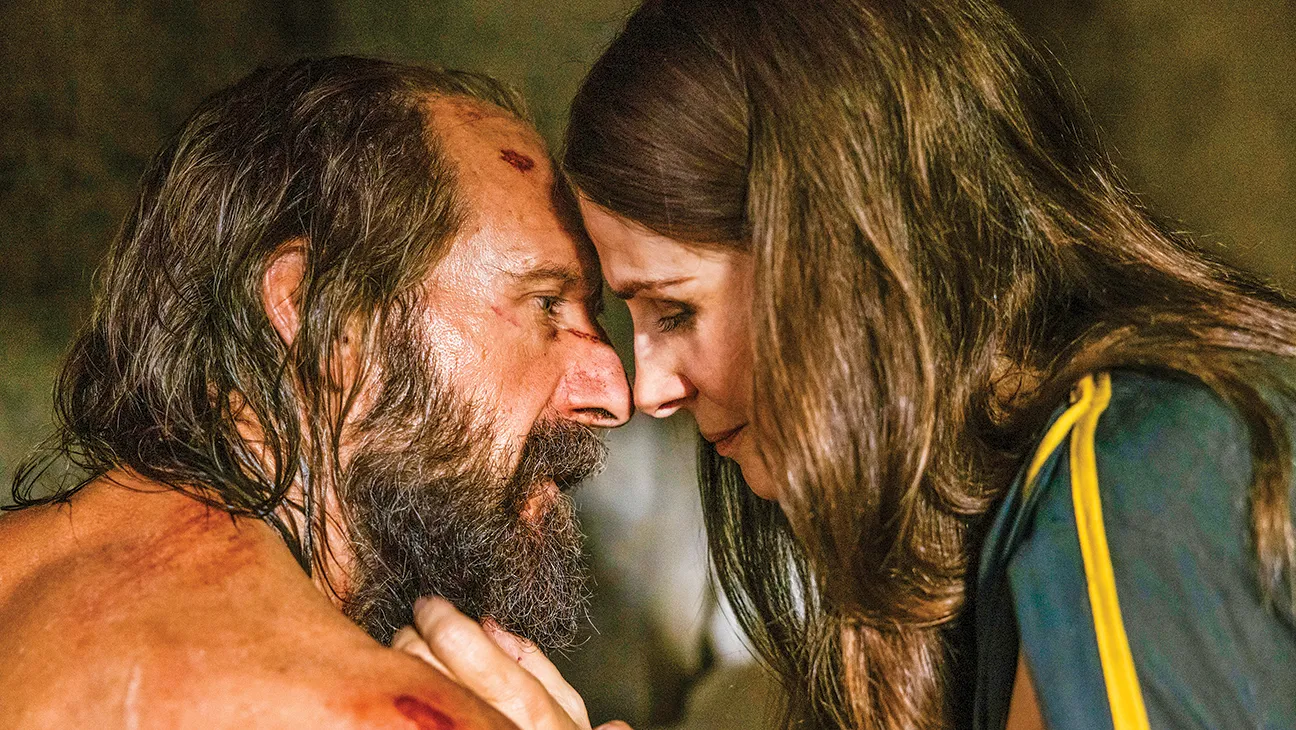Greek myths have been told and retold so often that the grandeur of hydras and minotaurs may very well distract us from the tragedy that so often lies at the hearts of these heroes’ tales. Such is the case with Homer and his two seminal writings, “The Iliad” and “Odyssey,” chronicling the overtaking of and subsequent abandonment of the mythic city of Troy. What happens to those men who brave those seas and land upon the shores of war? What becomes of a soul that leaves his family in the pursuit of glory and never returns?
“The Return” asks another, even more despairing question: what becomes of a man who endures those hardships in the name of glory, and comes back with little to show for it but a few distant legends of his departure and the chaos he left behind? To address such an impossible query, Uberto Pasolini turns to the tail end of Homer’s “Odyssey” with a distinctly melancholic view of a broken figure so weighty that his namesake has become synonymous with the very notion of a vast, life-changing journey.
There should be little point in attempting to craft a synopsis for an “Odyssey” retelling, as anyone who spent even a few years in high school is likely familiar, even if only tangentially, with the fabled quest of Odysseus. We all know of the escape to the Phaeacians, the seductive sirens, and the return to Ithaca. We remember the story of the man who tied himself to his ship so he could hear the sirens’ call without throwing himself overboard, or the horrid suitors who tried to have their way with Queen Penelope in her husband’s absence.
Pasolini knows that we know all of this, and so for his own vision, does away with almost all of it. “The Return,” instead, sets its sights on the very end of Odysseus’s (Ralph Fiennes) quest to return to Ithaca, beginning with his naked and ripped self washed ashore in the midst of the climaxing impatience of Penelope’s (Juliette Binoche) many prospective suitors. With none but her son Telemachus (Charlie Plummer) by her side, as these ravenous brutes lay waste to the land Odysseus abandoned to serve in the Trojan War, Penelope’s days of stalling are numbered.
One might think, then, that Odysseus would be quick to reclaim his throne and rid his kingdom of the plague of macho Greek dudebros who aim to seize his wife’s wealth and do away with the son who hates the father he never knew. To do so would certainly fall in line with all of our internalized understandings of the mythic heroes who return home and quickly handle business by the grace of the gods, but Pasolini is more interested in the muted melodrama at the core of a man so ashamed of the cost of his victories that he can’t even muster the strength to reveal himself to a group of smarmy thugs depleting all of his land’s resources and scaring away whatever decent inhabitants remain.
Of course, Fiennes’s Odysseus certainly doesn’t go very long before “revealing himself” in other ways–and all the middle-aged moms who wanted a wide shot of Voldemort’s ripped figure right down to his hanging member will be able to cross that one off their bucket lists—but the actor’s physical preparedness only serves to highlight the meekness of the core disposition that keeps him only just barely standing anymore. If the red cloth he dons through most of the film is meant to hide the chiseled figure of a soldier hoping to lay low, it does just as much to mask the stains of blood that remain firmly latched to his spirit.
Matching the sorrow of his lead with an aesthetically pleasing rendering of whatever Italian islands Rai Cinema footed the bill to rent, Pasolini indulges in some appropriately poetic imagery playing with the sunburnt stones and the shadows they cast once you step between their arches; Marius Pandaru’s cinematography, in conjunction with Rachel Portman’s somber score, brings an added sense of god-touched scope that lies between the words of a Homerian poem.
In exploring the poeticism of his material, Uberto Pasolini aims for several myth-like touches that would feel completely at home in any volume that treats every moment as though it were etched into the rim of a ceramic urn—a dog who instantly drops dead upon one final sighting of his long-lost master, or a gargantuan ruffian instantly killed with a single lucky move. These moments aren’t always communicated with the greatest consistency towards the rest of the material, but they do help “The Return” express the romanticized grandeur of a man’s journey after 10 years of war and 10 years of travel. At the same time, “The Return” never forgets the cost of such a journey, and as such, the term “odyssey” has never felt quite so pejorative as it does in Pasolini’s hands.





![The Master [2012] : A Kaleidoscope of Meaning](https://79468c92.delivery.rocketcdn.me/wp-content/uploads/2017/01/The-Master-768x512.jpeg)

![Beats Netflix [2019] Review: A Decent Film about an Underdog-Prodigy](https://79468c92.delivery.rocketcdn.me/wp-content/uploads/2019/07/Beats-Netflix-768x333.jpeg)
![‘Kidnapping Stella’ Netflix Review [2019]- Unimaginative but Thrilling Kidnapping Drama](https://79468c92.delivery.rocketcdn.me/wp-content/uploads/2019/07/Kidnapping-Stella-768x325.jpg)
![Searching Review [2018]: Go Find This Film!](https://79468c92.delivery.rocketcdn.me/wp-content/uploads/2018/09/Searching_HOF-768x432.jpg)